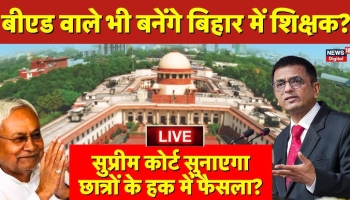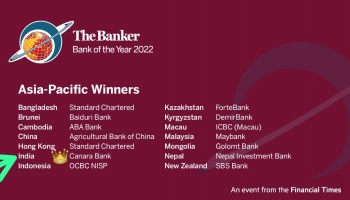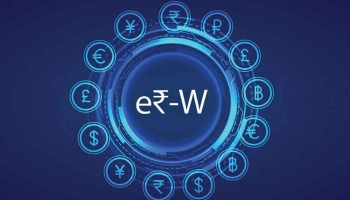Union Budget for Year 2011-12 Proposed new life for salaried person. The Income Tax benefit slab raised from 1.6 Lacs to 1.8 Lacs. For Housing loan limit raised from Rs 20 lakh to Rs 25 lakh from priority sector lending.
New Tax scheme Direct Tax Code to be effective from 01 April 2012……[Calculate Direct Tax Code]
Overall it was a mix type of Budget with nothing innovative. Eyes were kept on recent election in five state.
Here are the new tax proposals from the Union Budget 2011-12…
The finance minister Pranab Mukherjee said, “My proposals on direct taxes are estimated to result in a revenue loss of Rs11,500 crore for the year.
Proposals relating to indirect taxes are estimated to result in a net revenue gain of Rs11,300 crore, leaving a net loss of Rs200 crore in the Budget.”
Here are the Highlights of Union Budget 2011 summarized by Moneylife
DIRECT TAXES: Major taxes like Income Tax and Corporate tax comes under Direct Taxes. Net loss from direct tax proposals are estimated at Rs11,500 crore for the year.
Personal Taxes:
- Income-tax exemption limit raised to Rs1.80 lakh from Rs1.60 lakh for the general category
- Tax exemption for senior citizens raised to Rs2.50 lakh from Rs2.40 lakh
- Tax exemption eligibility for ‘very senior’ citizens aged 80 years and above raised to Rs5 lakh
- Govt to introduce new, revised and simplified from ‘Sugam’ to reduce the compliance burden for small tax payers falling within presumptive taxation
- The window for additional deduction of Rs20,000 for investment in long-term infrastructure bonds extended for one more year.
- No changes in the I-T exemption limit for women (at present it is Rs1.90 lakh)
Corporate Taxes
- Benefit of investment linked deduction extended to businesses engaged in the production of fertilisers.
- Investment linked deduction to businesses developing affordable housing.
- Weighted deduction on payments made to National Laboratories, Universities and Institutes of Technology to be enhanced to 200%.
- System of collection of information from foreign tax jurisdictions to be strengthened.
- Surcharge on domestic companies reduced to 5% from 7.5%
- Minimum Alternate Tax (MAT) increased to 18.5% from 18%
- MAT to be levied on developers as well as units operating in Special Economic Zones (SEZs)
- Tax on dividends received by an Indian company from its foreign subsidiary reduced to 15%
INDIRECT TAXES: Excise and customs duty which comes under Indirect taxes proposals to result in net gain of Rs7,300 crore.
- Standard rate of Central Excise duty maintained at 10%
- No change in CENVAT rates
- Customs duty on solar lanterns cut to 5% from 10%.
- Crude Palm Stearin, used in the manufacture of laundry soap fully exempted from basic customs duty.
- Full exemption from import duty that is available to spares and capital goods required for ship-repair units extended to imports by ship-owners too.
- Reduction in basic customs duty on raw pistachio to 10% from 30%.
- Reduction in basic customs duty on bamboo for agarbatti to 10% from 30%.
- 130 items, mainly from the consumer goods category, brought into the Central Excise regime. Remaining 240 items to be brought into the tax net when general sales tax (GST) would be introduced. Nominal 1% central excise duty would be charged on these 130 items entering the tax net. No CENVAT credit for manufacturers of these items.
- Basic food and fuel and precious stones, gold and silver jewellery, except branded ones, to be exempted.
- Lower rate of Central Excise duty increased to 5% from 4%.
- A levy of 10% on branded garments. Credit of tax paid on inputs, capital goods and input services would be available to manufacturers of these products. In addition, full SSI exemption is also extended to these products.
- Peak rate of customs duty maintained at 10% in view of the global economic situation.
- Basic customs duty on agricultural machinery reduced to 4.5% from 5%.
- Basic Custom Duty reduced on micro-irrigation equipment from 7.5% to 5%.
- De-oiled rice bran cake to be fully exempted from basic Custom Duty. Export Duty of 10% to be levied on its export.
- Export duty on all types of iron ore unified at 20% ad valorem.
- Basic customs duty on petcoke and gypsum (both used as critical raw material in cement industry) reduced to 2.5%.
- Full exemption from basic Customs Duty and a concessional rate of Central Excise Duty extended to batteries imported by manufacturers of electrical vehicles.
- Concessional Excise Duty of 10% to vehicles based on fuel cell technology.
- The excise duty on LEDs reduced to 5% from 10% and special CVD (4% at present) fully exempted.
- Reduction in basic customs duty on lactose for the manufacture of homeopathic medicines to 10% from 25%.
- Reduction in central excise duty on sanitary napkins, baby and adult diapers to 1% from 10%.
SERVICE TAXES: Service tax proposals to result in net revenue gain of Rs4,000 crore.
- Service tax widened to cover hotel accommodation charging above Rs1,000 a day, A/C restaurants serving liquor.
- Tax on all services provided by hospitals with 25 or more beds with facility of central air-conditioning.
- Service tax on air travel increased by Rs50 for domestic travel and Rs250 for international travel in economy class. On higher classes, it will be 10% flat.
- Services provided by life insurance companies in the area of investment and some more legal services proposed to be brought under the tax net.
- All individual and sole proprietor taxpayers with a turnover up to Rs60 lakh freed from the formalities of audit.
- To encourage voluntary compliance, the penal provisions for Service Tax are being rationalised. Similar changes being carried out in Central Excise and Custom laws.






http://wordpress.org/extend/plugins/searchterms-t…